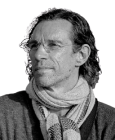Emotion Regulation
Lost Inside My Emotions
How to shine from within.
Posted May 25, 2023 Reviewed by Hara Estroff Marano
Key points
- When our capacity for subjectivity is obscured, our self becomes contracted, emotion regulation declines.
- When our capacity for integration dims, our mind becomes unclear, emotion regulation decreases.
- Learning to shine from an open and expanded mind can be our most fulfilling possibility.
Shine on You Crazy Diamond
Too many people are lost in their emotions, in their self-sabotaging minds, in their contracted selves. What is blocking their joie de vivre, their life courage, their clarity and enthusiasm to live?
The two foundational components of consciousness are subjectivity and the capacity to integrate experiences, writes neuroscientist Antonio Damasio in The Strange Order of Things, a work that roots the possibility for consciousness deeply in life (2018). Following his valuable insights, I briefly touch on why so many people on an extraordinary planet in an amazing universe are stuck in their emotions, unable to see the beauty of the possibility to live.
Art can be inspiring because it challenges and opens the sometimes closed boundaries of dogmatic thinking. The legendary rock group Pink Floyd once composed a song that still tops the charts of the very best pop music songs: Shine on you crazy diamond (Wish You Were Here, 1975).
“Remember when you were young, you shone like the sun.
Now there's a look in your eyes, like black holes in the sky.”

Their observation is still valid. We can see this open gaze of wonder and curiosity in young children. When they still have their beginners mind unspoiled by cultural dogmas. We can often observe this phenomenon around us and sometimes within ourselves. Does our life naturally shine from the beginning? What is that blocks the adult mind from shining?
Is it still possible as an adult to shine like a crazy diamond, unhindered by the worldly disruptions and challenges of today’s world? Or is this a delusion?
When Our Capacity for Subjectivity Is Obscured
Consciousness evolved from life as an expression of natural intelligence. Many observations point into that direction. It is not easy to look back into the past. Especially not when this past probably goes back several million years. The evolution of our consciousness will presumably always be concealed behind a veil of uncertainty. So, what is our best interpretation, based on careful observation?
Supposedly about four billion years ago, forms of molecules emerged on the planet Earth that learned the ability to replicate and repair themselves. This was probably the starting point for the evolution of the membrane-bound porous cell. It challenges our imagination to envision how from this exchange process between terrestrial and galactic events complex multicellular life like ours could arise. And yet, it happened.
How this was possible remains a life-long challenge to our curiosity and wonder. But this is precisely what makes us shine. Observing the expression of the natural intelligence of life offers us a life-long source of deeply connected joy. Thanks to centuries of careful and precise observations of the processes of life by millions of passionate people looking into their microscopes and telescopes and sharing them, we have now an overwhelming possibility to see the beauty of the natural intelligence of life at work.
- Subjectivity arose from the capacity to regulate our embodied life. Primordial feelings occurred as the expressions of the values of the life lived well or poorly.
- Subjectivity brought us a felt perspective on the quality of our life rising from our interoceptive senses.
When this capacity for subjectivity becomes stuck in the self-repeating habits of our conceptual mind, it disconnects from our embodied life. When our life becomes disembodied, its shining is slowly veiled. Just as the clouds can block the sun, sometimes like a thin veil, sometimes like a thick fog. Our emotional life contracts.
When Our Capacity for Integration Dims
Could we shine without consciousness? Understanding how consciousness emerged from life is one of the most intriguing insights we can find. Trying to understand this miracle is one of the core challenges of today’s psychology. Grounding consciousness in life is not a simple materialistic reduction that negates the possibility of spiritual or religious experience. On the contrary, it only deepens our respect and care for life.
Consciousness is our capacity to integrate experiences. But our modern world became extremely complex, changes very quickly, and it is far from clear in which direction we are going. This creates a deep confusion that fundamentally disturbs our capacity for integration.
When our lives are overloaded and unclear, our shining slowly darkens. Life becomes less clear, life contracts, sometimes like black holes. Our emotional life narrows.
Cultivating Our Possibility to Shine
Keeping a fresh open mind, like the beginners mind of a young child, full of enthusiasm, filled with curiosity and awe, as if we are looking at something for the first time, is for adults a serious challenge, probably the ultimate challenge. We humans are habit creatures. We are full of conditionings. We became the prisoners of our mind’s self-repeating habits.
Love as the open, unconditional curiosity for life is the most beautiful, natural expression that make human beings shine. We can see this shining in the artistic expressions of musicians, actors, painters, and poets.
Isn’t this what also psychology is about: trying to polish the pearl of consciousness; trying to purify subjectivity from its narrowing habits; integrating our ability to know with its living embodiment? Briefly feeling this truth of life, beyond our delusions and dogmas, beyond our self-created barriers, can be deeply fulfilling.
Legendary psychologist Abraham Maslow sought the possibility for shining in moments of self-transcendence. Psychiatrist Viktor Frankl sought moments of shining in the open space between stimulus and response.
It seems to me that art can briefly touch the deeper essence of life. In those exceptional moments, when the habitual thinking mind opens and expands, life can shine. When we see the interconnected expression of the myriad exchanges we are, then consciousness shows itself as the crown jewel of our life. For a moment we are not lost in our narrowed emotions; for a moment, our diamond shines. The option of clarity is not a delusion. Learning to care for our capacities for subjectivity and integration can be our most fulfilling possibility: it opens and expands our emotional life.
References
Damasio, A., (2018). The Strange Order of Things. London, Pantheon Books.




